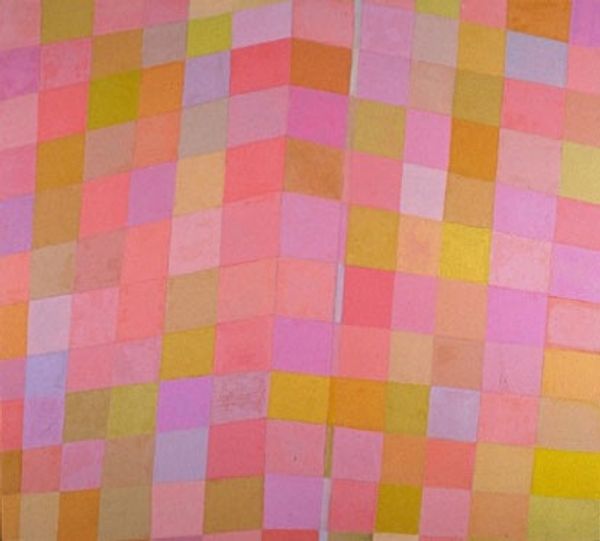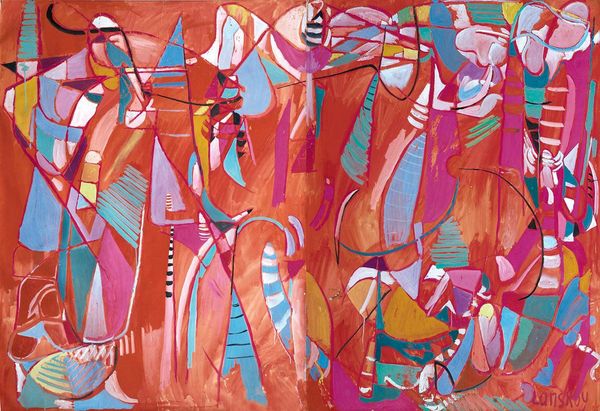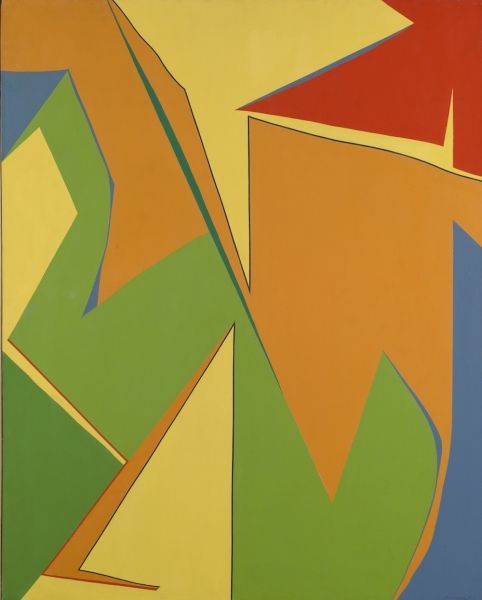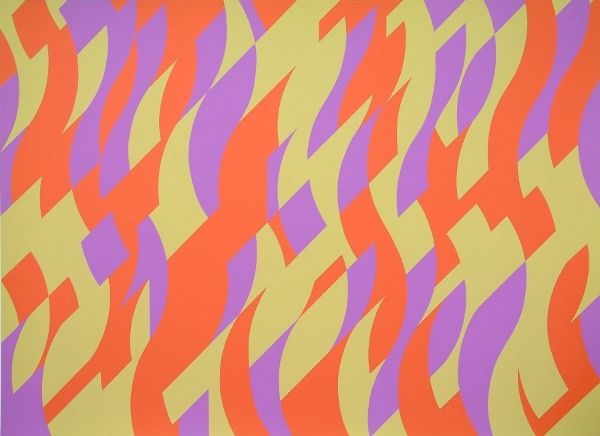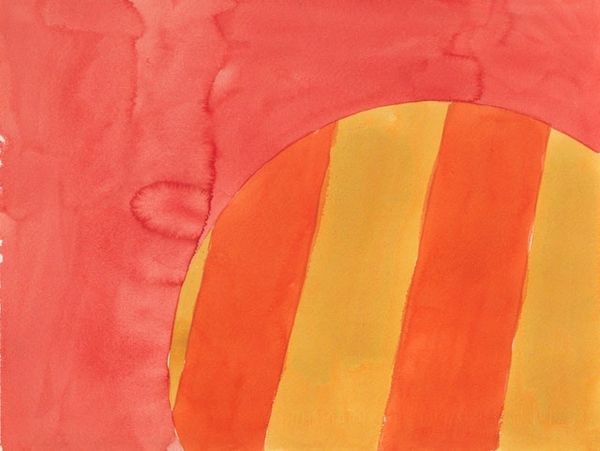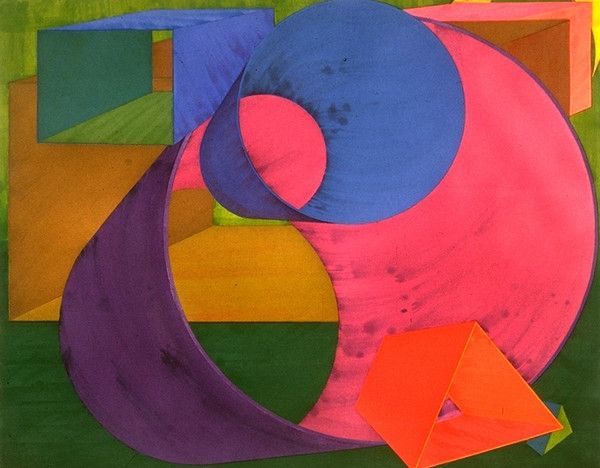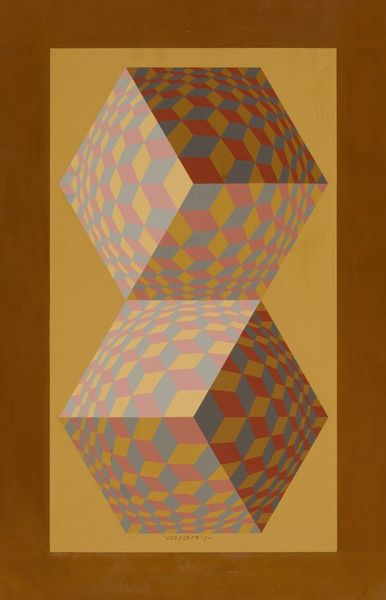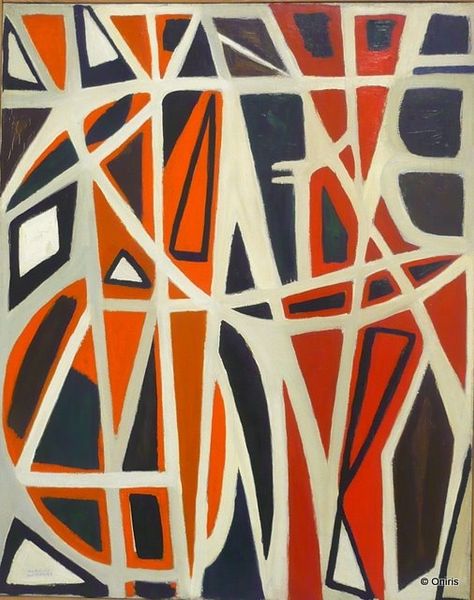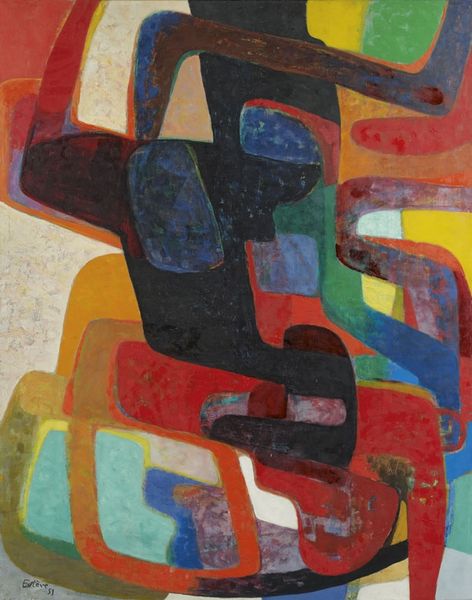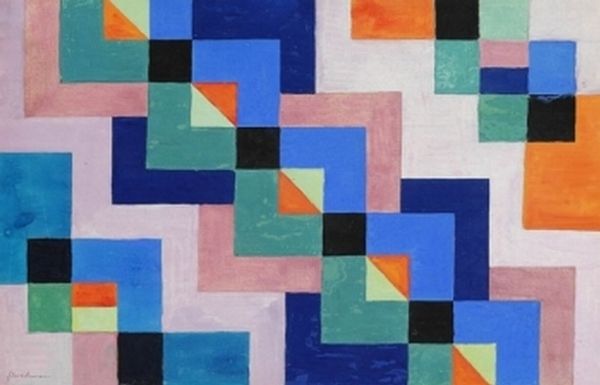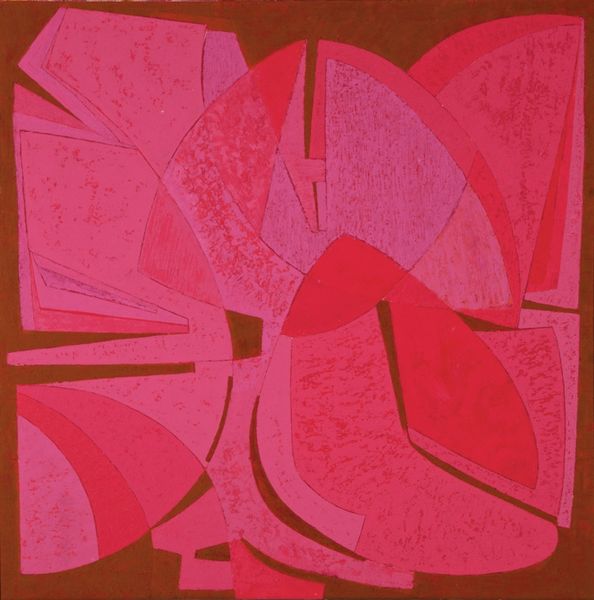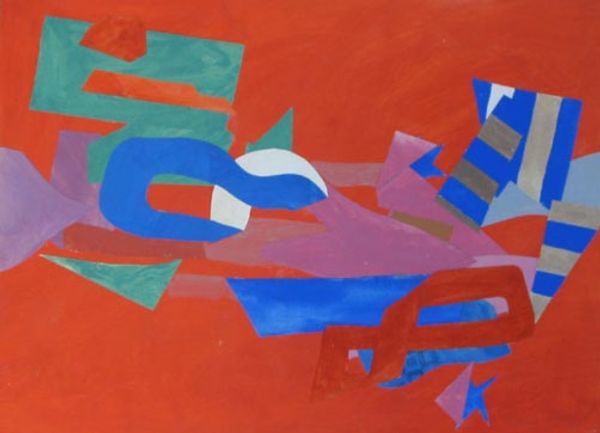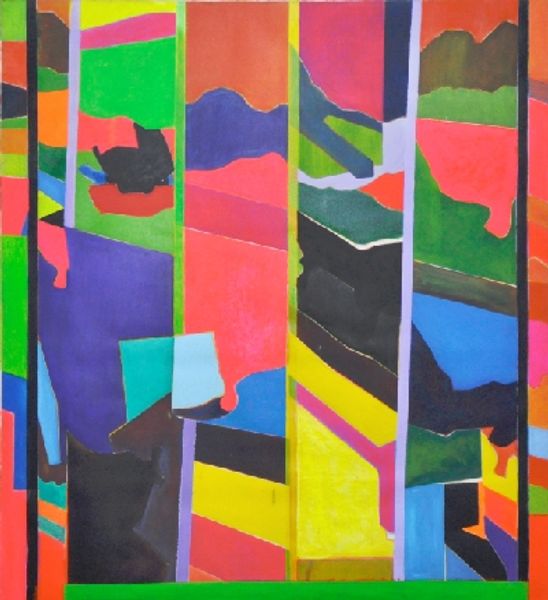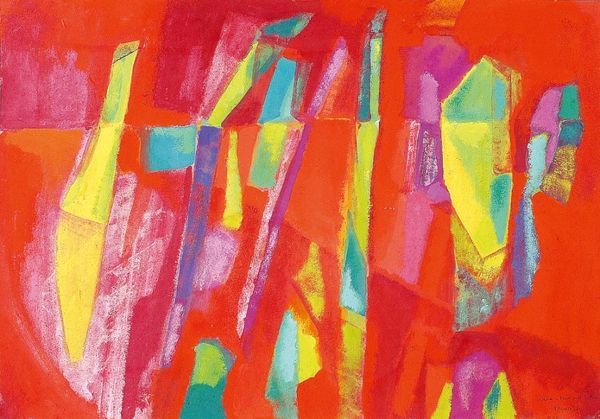
painting, acrylic-paint
#
painting
#
acrylic-paint
#
geometric
#
geometric-abstraction
#
abstraction
#
line
#
modernism
#
hard-edge-painting
Copyright: Carmen Herrera,Fair Use
Editor: So this is Carmen Herrera's "Flight of Colors" from 1949. It's an acrylic painting, full of these bold geometric shapes. I find the contrast between the softer pinks and bolder oranges quite striking. How do you interpret this work, especially considering its materiality? Curator: Well, let's consider the 'how' of it first. Acrylic paint, a relatively new material in 1949, allowed for flat, vibrant fields of color. Herrera embraced this, rejecting traditional brushwork for a clean, almost industrially-produced aesthetic. Isn't it interesting how a synthetic material helped define a visual language that felt so… pure? It questions the hierarchy of painting materials and their connection to 'high art.' What do you make of that, relative to the time? Editor: That makes a lot of sense. I hadn’t considered the impact of using acrylics at that time. So, she’s choosing this material for its… detachment, almost? Does this detachment have anything to do with challenging pre-established artistic values? Curator: Precisely! It challenged the then-dominant Abstract Expressionism, which privileged the artist’s gesture and the handmade. By minimizing the visible trace of the artist's hand, Herrera shifted the focus to the relationships between color, form, and, ultimately, the viewer's experience of space. Also, don’t forget this emerged in a postwar context with a changing culture. How does industrial production enter our consideration? Editor: I see it now. This almost mass-produced aesthetic really clashes with the art world's established ideas and definitions. So the act of making becomes just as important as the final visual product of ‘art.’ I appreciate knowing what lies beneath its exterior more fully. Thanks for shedding some light! Curator: Indeed. By examining the materiality and the means of production, we unveil layers of meaning that transcend the purely visual, prompting a deeper engagement with the artwork and its socio-historical context. A new vista has been created for us.
Comments
No comments
Be the first to comment and join the conversation on the ultimate creative platform.
